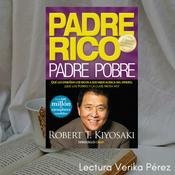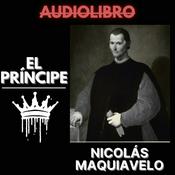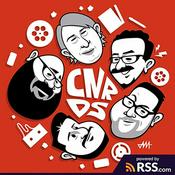35 episodios
- Julia Quinn published "The Duke and I," the first book in the 'Bridgerton' series, in 2000. Seven books and a quarter century later, its adaptation remains one of the biggest series ever to air on Netflix. Quinn spoke to host Gilbert Cruz about the show, her books and why the heck that family has so many children.
"I don't even remember why I made eight kids," said Quinn. "I just, I wanted her to have a big family and somehow that's how many kids there were. And if I had planned on eight, I would've plotted things out better. There were a number of places where I really wrote myself into a corner."
Subscribe today at nytimes.com/podcasts or on Apple Podcasts and Spotify. You can also subscribe via your favorite podcast app here https://www.nytimes.com/activate-access/audio?source=podcatcher. For more podcasts and narrated articles, download The New York Times app at nytimes.com/app.
Hosted by Simplecast, an AdsWizz company. See pcm.adswizz.com for information about our collection and use of personal data for advertising. - Keza MacDonald, the video games editor at The Guardian and author of the new book “Super Nintendo: The Game-Changing Company That Unlocked the Power of Play,” chose to write her first book about Nintendo because it has been so central for so long to the culture of games. “It was the company that got me into video games,” she says. “I know that’s the same story that millions of other people have had as well." She speaks with host Gilbert Cruz about the iconic Japanese company as well as how the perception of gaming has changed over the decades.
Subscribe today at nytimes.com/podcasts or on Apple Podcasts and Spotify. You can also subscribe via your favorite podcast app here https://www.nytimes.com/activate-access/audio?source=podcatcher. For more podcasts and narrated articles, download The New York Times app at nytimes.com/app.
Hosted by Simplecast, an AdsWizz company. See pcm.adswizz.com for information about our collection and use of personal data for advertising. - Xenobe Purvis’s slim but powerful debut novel, “The Hounding,” opens with a jolt: “The girls, the infernal heat, a fresh-dead body. Marching up the river path, the villagers.”
How did we get here, with five young sisters living in 1700s England being hunted by an angry mob that suspects them not only of murder but also of the demonic ability to transform themselves into a pack of wild dogs? That is the tale “The Hounding” unfolds, in a gothic parable about male ego, cultural misogyny and the dangers of gossip run amok.
On this week’s episode, host MJ Franklin discusses “The Hounding” with his fellow Book Review editors Joumana Khatib, Emily Eakin and Gregory Cowles.
Other books and works mentioned in this podcast:
“The Lottery,” by Shirley Jackson
“The Sound of Music,” directed by Robert Wise
“The Testament of Yves Gundron,” by Emily Barton
“The Scarlet Letter,” by Nathaniel Hawthorne
“Everyone Knows Your Mother Is a Witch,” by Rivka Galchen
“Delicate Edible Birds,” by Lauren Groff
“Paradise,” by Toni Morrison
The podcast “Normal Gossip”
“You Didn’t Hear This From Me,” by Kelsey McKinney
Subscribe today at nytimes.com/podcasts or on Apple Podcasts and Spotify. You can also subscribe via your favorite podcast app here https://www.nytimes.com/activate-access/audio?source=podcatcher. For more podcasts and narrated articles, download The New York Times app at nytimes.com/app.
Hosted by Simplecast, an AdsWizz company. See pcm.adswizz.com for information about our collection and use of personal data for advertising. - The journalist, novelist and cultural critic Chuck Klosterman is best known for writing about rock music and pop culture in astute essay collections like “The Nineties,” “X” and “Sex, Drugs and Cocoa Puffs.” But Klosterman got his start in college as a sports journalist, and with his new book, “Football,” he has finally devoted an entire collection to the sport that has fundamentally shaped him alongside American society at large.
“I’ve unconsciously been thinking about football for most of my life,” Klosterman tells host Gilbert Cruz on this week’s episode. “I decided at some point, I do want to write a book about sports. You know, I’d always mentioned sports here and there in the culture writing I had done, or the kind of conventional pop culture writing I’d done, but I wanted to do a real sports book. And initially my idea was it would be about basketball — but over time it became very clear to me it had to be about football, for a variety of reasons. … It seemed as though if you’re going to do a sports book, particularly as it relates to society, there is only one choice in the United States.”
Subscribe today at nytimes.com/podcasts or on Apple Podcasts and Spotify. You can also subscribe via your favorite podcast app here https://www.nytimes.com/activate-access/audio?source=podcatcher. For more podcasts and narrated articles, download The New York Times app at nytimes.com/app.
Hosted by Simplecast, an AdsWizz company. See pcm.adswizz.com for information about our collection and use of personal data for advertising. - A new year means new books are on the way! So many new books. On this week’s episode, host Gilbert Cruz talks with fellow Book Review editors Joumana Khatib and MJ Franklin about the upcoming fiction and nonfiction titles they’re most anticipating between now and April.
Here are the books discussed in this week’s episode:
“Vigil,” by George Saunders
“Where the Serpent Lives,” by Daniyal Mueenuddin
“Fear and Fury: The Reagan Eighties, the Bernie Goetz Shootings and the Rebirth of White Rage,” by Heather Ann Thompson
“Five Bullets,” by Elliot Williams
“Lost Lambs,” by Madeline Cash
”Half His Age,” by Jennette McCurdy
“A World Appears: A Journey Into Consciousness,” by Michael Pollan
“On Morrison,” by Namwali Serpell
“Language as Liberation: Reflections on the American Canon,” by Toni Morrison
“Clutch,” by Emily Nemens
“Murder Bimbo,” by Rebecca Novack
“Kin,” by Tayari Jones
“Cave Mountain: A Disappearance and a Reckoning in the Ozarks,” by Benjamin Hale
“Lake Effect,” by Cynthia D’Aprix Sweeney
“Now I Surrender,” by Alvaro Enrigue
“The Keeper,” by Tana French
Subscribe today at nytimes.com/podcasts or on Apple Podcasts and Spotify. You can also subscribe via your favorite podcast app here https://www.nytimes.com/activate-access/audio?source=podcatcher. For more podcasts and narrated articles, download The New York Times app at nytimes.com/app.
Más podcasts de Arte
Podcasts a la moda de Arte
Acerca de The Book Review
The world's top authors and critics join host Gilbert Cruz and editors at The New York Times Book Review to talk about the week's top books, what we're reading and what's going on in the literary world.
Subscribe today at nytimes.com/podcasts or on Apple Podcasts and Spotify. You can also subscribe via your favorite podcast app here https://www.nytimes.com/activate-access/audio?source=podcatcher. For more podcasts and narrated articles, download The New York Times app at nytimes.com/app.
Sitio web del podcastEscucha The Book Review, Bibliotequeando y muchos más podcasts de todo el mundo con la aplicación de radio.net

Descarga la app gratuita: radio.net
- Añadir radios y podcasts a favoritos
- Transmisión por Wi-Fi y Bluetooth
- Carplay & Android Auto compatible
- Muchas otras funciones de la app
Descarga la app gratuita: radio.net
- Añadir radios y podcasts a favoritos
- Transmisión por Wi-Fi y Bluetooth
- Carplay & Android Auto compatible
- Muchas otras funciones de la app


The Book Review
Escanea el código,
Descarga la app,
Escucha.
Descarga la app,
Escucha.































